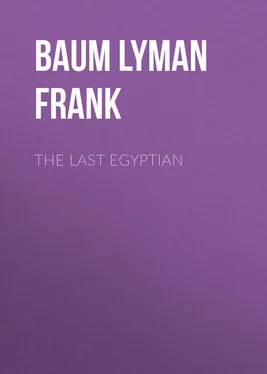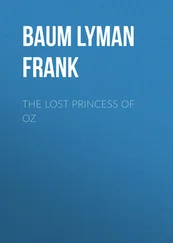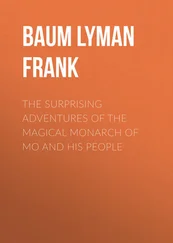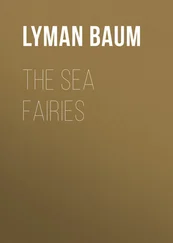Lyman Baum - The Last Egyptian
Здесь есть возможность читать онлайн «Lyman Baum - The Last Egyptian» — ознакомительный отрывок электронной книги совершенно бесплатно, а после прочтения отрывка купить полную версию. В некоторых случаях можно слушать аудио, скачать через торрент в формате fb2 и присутствует краткое содержание. Жанр: foreign_antique, foreign_prose, на английском языке. Описание произведения, (предисловие) а так же отзывы посетителей доступны на портале библиотеки ЛибКат.
- Название:The Last Egyptian
- Автор:
- Жанр:
- Год:неизвестен
- ISBN:нет данных
- Рейтинг книги:5 / 5. Голосов: 1
-
Избранное:Добавить в избранное
- Отзывы:
-
Ваша оценка:
- 100
- 1
- 2
- 3
- 4
- 5
The Last Egyptian: краткое содержание, описание и аннотация
Предлагаем к чтению аннотацию, описание, краткое содержание или предисловие (зависит от того, что написал сам автор книги «The Last Egyptian»). Если вы не нашли необходимую информацию о книге — напишите в комментариях, мы постараемся отыскать её.
The Last Egyptian — читать онлайн ознакомительный отрывок
Ниже представлен текст книги, разбитый по страницам. Система сохранения места последней прочитанной страницы, позволяет с удобством читать онлайн бесплатно книгу «The Last Egyptian», без необходимости каждый раз заново искать на чём Вы остановились. Поставьте закладку, и сможете в любой момент перейти на страницу, на которой закончили чтение.
Интервал:
Закладка:
Tadros moved uneasily and cast a longing glance at the roll.
“I like not this barbaric traffic in womankind,” he muttered, with indecision.
“Nor I,” agreed Kāra. “It is Sĕra who is to blame. If she has a fat daughter, she will want a fat price for her. Otherwise, how can she be recompensed for the girl’s keep? But five hundred is too much for Nephthys. I would have to give her mother the other two hundred and fifty piastres myself – and you would have the roll. By Isis, ’tis a bad bargain! Here; let us say no more about it. Give me the papyrus.”
“Wait – wait!” cried Tadros. “Why are you so unjust in your conclusions? The bargain is made. No one but a sneaking Arab goes back on his word.”
“It is as you say,” replied Kāra, stretching his long arms and yawning. “But it is a fine papyrus, Tadros – all about the Kheta and King Rameses.”
“I know; I know!” returned the dragoman, nervously tucking his prize under his arm. “Come with me at once. I will inform Sĕra of the transfer of my property.”
He rose to his feet a little unsteadily, because his throat still hurt him, and led the way.
Kāra quietly followed.
In Sĕra’s hovel mother and daughter were weaving upon a rude cane loom.
“See here,” announced the dragoman; “this Nephthys is too free with her favors, and I cannot be coming forever to this forsaken village to look after her. Besides, I must get back to Cairo to attend to my business, so I have sold the girl to my friend Kāra here, and when he takes her away from you, if ever he does, he is to pay the other two hundred and fifty piastres I promised.”
Sĕra seemed surprised, but nodded her head cheerfully.
“It is all the same to me,” she replied. “If the royal one has the money to satisfy you, it is none of my business, I am sure. An alliance with the descendant of the great Ahtka-Rā is something to be proud of.”
The girl had broken a thread. As she prepared to retie it, she glanced from one to the other of the two men with a look of indifference.
“I do not promise to make Nephthys a wife,” said Kāra, slowly, “although, of course, it may come to that. My plans are not formed for the future. But I have acquired the girl in betrothal through my compact with Tadros, and his rights are hereafter mine.”
“She grows plumper every day,” said Sĕra, glancing at Nephthys critically. “You will seek long, my Kāra, before you find a more desirable wife. Yet I am in no hurry to lose my daughter, believe me, even for the money she will bring. Take your time about deciding the matter.”
“I will,” responded Kāra, briefly.
“And now, tell me, what has become of your grandmother, Hatatcha?”
“I have carried her into the desert to be embalmed.”
And then, to avoid further questioning, he went away.
CHAPTER VI
KĀRA BATHES IN THE NILE
Tadros followed him into the street again.
“Those other papyri,” he said – “do you wish me to sell them for you?”
“They are already sold,” replied Kāra, regardless of truth.
“Indeed! To whom?”
“Winston Bey, the Englishman.”
Tadros uttered an exclamation of annoyance.
“Where have you met him?” he asked.
“Here, at the Nile landing. His boat will come to-night for the papyrus rolls.”
Many thoughts passed rapidly through the dragoman’s mind. Here was bad news, indeed. He had planned on getting all those wonderful rolls into his own hands, and his disappointment was keen to find that this isolated Egyptian of an out-of-the-way rock village had already been approached and bought up by one of those rascally scientists, before he, the clever dragoman, had even known of the existence of the treasures.
“He will rob you,” he ventured to suggest.
“Very well,” replied Kāra, indifferently.
Tadros was in despair. Yet one thing was plainly evident – if Winston Bey was about to unload fourteen newly found rolls of papyrus upon the directors of the museum in Cairo, it would be well for him, the dragoman, to get his one roll in first, at the highest possible price. That could easily be accomplished. Winston’s dahabeah would consume four or five days on the downward voyage. Tadros could cross the Nile in a small boat and catch the railway on the other bank, which would land him in Cairo the next day. He promptly decided to take the railway.
“I expect,” said Kāra, “to be in Cairo myself shortly. If you are there, I would like to hire your services as dragoman.”
Tadros, aroused from his meditations, gave a start, and wonderingly examined the speaker from his dirty bare feet all the way up his soiled burnous to his strong, calm face and faded turban. He had been a native of Fedah himself, and had known “the royal one,” as he scornfully called Kāra, from boyhood. Until now he had regarded him as a permanent fixture of the little village; a listless, lazy do-nothing, supported in some mysterious way by his grandmother and destined to grow old amid his solitary surroundings.
Some slight importance Kāra had doubtless acquired through his inheritance of the papyri; but that he should think of visiting Cairo and employing the brilliantly appareled dragoman was a marvel that fairly astounded Tadros. Yet, why not? He would have money. Tadros could assuredly teach him how to spend it. Kāra might become an incident in his career – an element in his future prosperity.
“Call upon me at any time,” he said, condescendingly. “You shall have the advantage of my experience and knowledge of the world.”
“That is what I want,” returned the Egyptian, “and I will pay you liberally for it.”
He passed into his dwelling, and the dragoman, watching him go, decided to make speedy preparation for his own departure.
He felt much easier in his mind than at first. What if Winston Bey purchased the papyrus rolls? Would not Tadros be the young man’s guide? Very good. Very good, indeed!
Kāra lay down again and slept until after noon. Then he went to the hut of Nefert, who baked the bread for the village, and bargained with her for a loaf and a bowl of milk. Also he acquired from her a large, coarse sack. In exchange he gave her Hatatcha’s water jar, which had come from Keneh, and an old scarf his grandmother had worn over her head.
He ate the loaf and drank the milk, feeling much refreshed. Then he carried the sack to his dwelling and placed the papyrus rolls in it.
From the secret cavity beside the arch he took the bronze vase with the metal stopper, a scarab ring that his grandmother had sometimes worn, and a slender dagger with a steel blade. The bronze dagger that served as a key to the rock door he left in the cavity, as well as the lamp.
Having replaced the stone, he glanced around to see whether there was anything that might be disturbed or stolen during his absence; but the room was bare of anything to tempt a thief or a despoiler. So he swung the sack over his shoulder and walked out and around the end of the mountain on his way to the Nile.
Winston Bey had kept his word. On the chance that the strange Egyptian he had encountered would manage to secure either valuable information or some ancient relics from his mysterious grandmother, he had kept his dahabeah in the neighborhood, ignoring the protests of his unhappy Arab crew. The afternoon following his interview with Kāra, he landed near the group of palms an hour before sunset, and waited until darkness fell without obtaining a sight of the Egyptian. Then he dropped down the stream to Tel El Armana, where the dahabeah remained until the next noon.
To-day he figured on another disappointment; but when Gerald Winston had an object in view he pursued it with dogged determination, and he had resolved to keep his appointment each day for a week at least before considering his future actions. There was no question but he was on the track of an important discovery, and he did not intend to abandon the quest lightly.
Читать дальшеИнтервал:
Закладка:
Похожие книги на «The Last Egyptian»
Представляем Вашему вниманию похожие книги на «The Last Egyptian» списком для выбора. Мы отобрали схожую по названию и смыслу литературу в надежде предоставить читателям больше вариантов отыскать новые, интересные, ещё непрочитанные произведения.
Обсуждение, отзывы о книге «The Last Egyptian» и просто собственные мнения читателей. Оставьте ваши комментарии, напишите, что Вы думаете о произведении, его смысле или главных героях. Укажите что конкретно понравилось, а что нет, и почему Вы так считаете.












